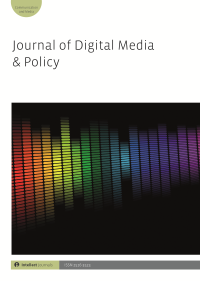
Full text loading...
 , Seamus Simpson2
, Seamus Simpson2
This article provides a contribution to knowledge on the growth of online news commenting in Nigeria. Specifically, it accounts for factors that influence the character of the often-fractious online discursive behaviour in evidence and what communication policy understandings might be developed from this. The article innovates by deploying a combined political economy–communication policy approach with two purposes in mind. First, drawing inspiration from the criticality of political economy, it shows how the ‘representational’ role of online news media sets the context for the nature of the discourse in evidence premised on the long-established assertion that media content is not value-free but shaped by ideological positions. Second, underpinned by a recently resurfaced argument espousing the value of a combined utilization of the critical and administrative approaches to communication research, the article puts forward a set of policy-related findings for media change in Nigerian polity often characterized by significant societal disquiet.

Article metrics loading...

Full text loading...
References


Data & Media loading...

Publication Date:
https://doi.org/10.1386/jdmp_00102_1 Published content will be available immediately after check-out or when it is released in case of a pre-order. Please make sure to be logged in to see all available purchase options.